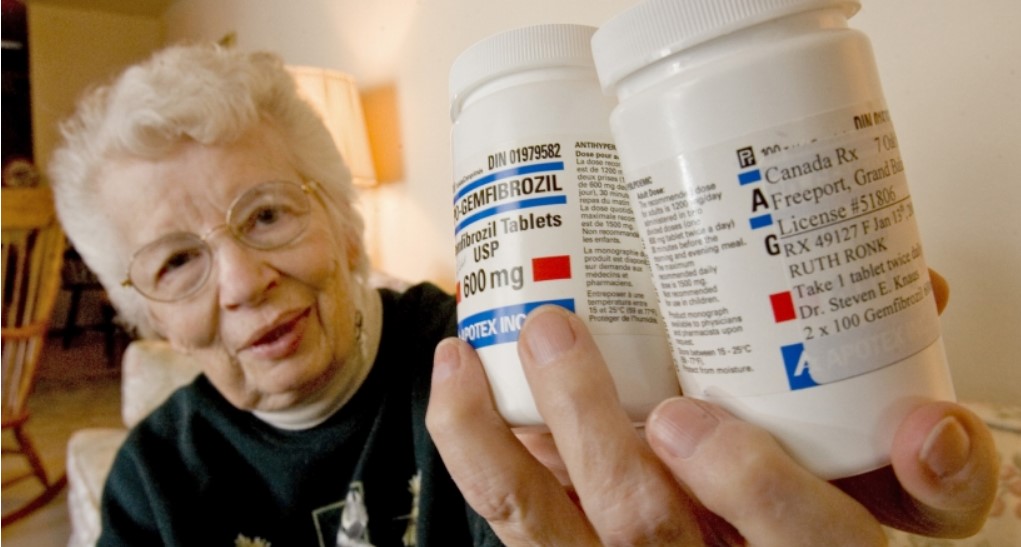President Trump got under the skin of Canadians during his crusade when he assailed the nation’s medicinal services framework — their national pride — as “moderate” and “calamitous.”

However, there’s one thing in Canadian medicine that he respects. On Wednesday, his organization said it was gauging plans to allow for the lawful importation of physician recommended drugs from Canada to help Americans solve the issue of soaring medication costs in the United States.
How did Canada react? They refused the offer.
Drug specialists, patients, medical specialists, and a few legislators here stress that the enormous importation of pharmaceuticals could drain the medication supply for the nation’s 37 million residents.
What do specialists think?
“This will intensify a portion of the medication shortages that we’re now finding in Canada,” said Joelle Walker, the VP of public affairs for the Canadian Pharmacists Association. “We aren’t ready to supply a nation that is multiple times our size. Besides, such measures will lead to an increased price of drugs in Canada.”
Healthcare Canada, the government general wellbeing service, reports there are 1,846 medication deficiencies and 65 foreseen shortages in the nation. Causes incorporate expanded interest, deficiencies of ingredients and delays in delivery.
“The Canadian government needs to begin building up a system to manage this issue,” said Joel Lexchin, a teacher of pharmaceutical strategy at the University of Toronto and an emergency room specialist at Toronto General Hospital.
Prime Minister Justin Trudeau told correspondents Thursday that Health Canada would keep on guaranteeing that “Canadians can buy the drugs in Canadian pharmacies they need at reasonable costs.”
Why Trump’s offer was rejected?
Trump’s “safe importation activity plan” would permit state governments, drug stores and medication makers to submit recommendations for bringing in physician recommended drugs from Canada for federal approval.
Here, you can check the table of drug cost in the US and other countries. USA imports 70% of all medications and this number is going to be expanded further. Who supplies the pharmacies? Ireland holds the top rank, with around $15.2 billion worth of drug exports to the U.S., constituting 18% of the total U.S. drug imports of 2015. It is closely followed by Germany with $14.5 billion, or around 17%. Another European nation, Switzerland, supplied $9.4 billion worth of drugs, representing around 11% contribution. Israel stands fourth at $6 billion, at par with Indian exports to the U.S.
Import of prescription from Canada has long been a taboo in the United States because of concerns about fake medications. In any case, as medication costs in the United States have risen, the idea of importing drugs started being popular. States including Florida, Maine, and Vermont have passed laws to permit the import, which is now the subject to the endorsement of the government Department of Health and Human Services.
Americans are dissatisfied with the fact that vitally important drugs can be bought for 1/10 of their American price in Canada. How’s that possible? Canada has the possibilities to control medication costs. The investigation from Rx Savings Solutions, provided details regarding by The Wall Street Journal, demonstrated that in excess of three dozen medication creators lifted costs on several prescriptions in the U.S. at the beginning of 2019. The choice by numerous organizations to present unassuming climbs was eclipsed by a couple of firms seeking after progressively forceful activity, as indicated by Rx, prompting a normal increment in medication costs of 6.3%.
The nation imports a large portion of its prescribed drugs from different nations. A government body sets the price ceiling for each brand-name medication to guarantee that costs are affordable. Partially this is done by comparing medication prices in seven nations like Canada.
Why generic drugs are not the way out?
Interesting to note, the prices for some generic medications are not set by the government body. Canadians regularly pay more for them than Americans do. Although some Canadian pharmacies keep the prices moderate, others feel free to add up to 50% of the original cost. If Americans start importing medications from Canada, it will take some control over the prescription drugs.
Some Canadians considered the Trump proposition a lie and said worldwide pharmaceutical organizations are probably not going to make a move. There’s a serious threat of a shortage of medications in Canada if drugs start being sent to the US.
The Canadian government is always ready to help
No matter what, the Canadian government is always ready to help pharmaceutical companies. Sarah Dion-Marquis, a representative for Innovative Medicines Canada, said the drugmaker campaigning group would “welcome an open proclamation from the Canadian government affirming that it will make the suitable move to help secure Canadian supplies in case of a potential deficiency.”
“Guaranteeing that Canadians approach the meds they need is one of our main priorities,” said Alexander Cohen from Health Canada in his announcement. He said Health Canada “will work intimately with wellbeing specialists to all the more likely comprehend the suggestions for Canadians and will guarantee there are no unfavorable impacts on the supply or cost of physician endorsed medicates in Canada.”
John Adams, the seat of the Best Medicines Coalition, a support group for access to drugs that marked the letter a week ago to the healthcare minister, said he’s not satisfied with the Canadian government’s “unclear” reaction to Trump’s proposition. He called it “an obvious risk” to the strength of Canadians.
